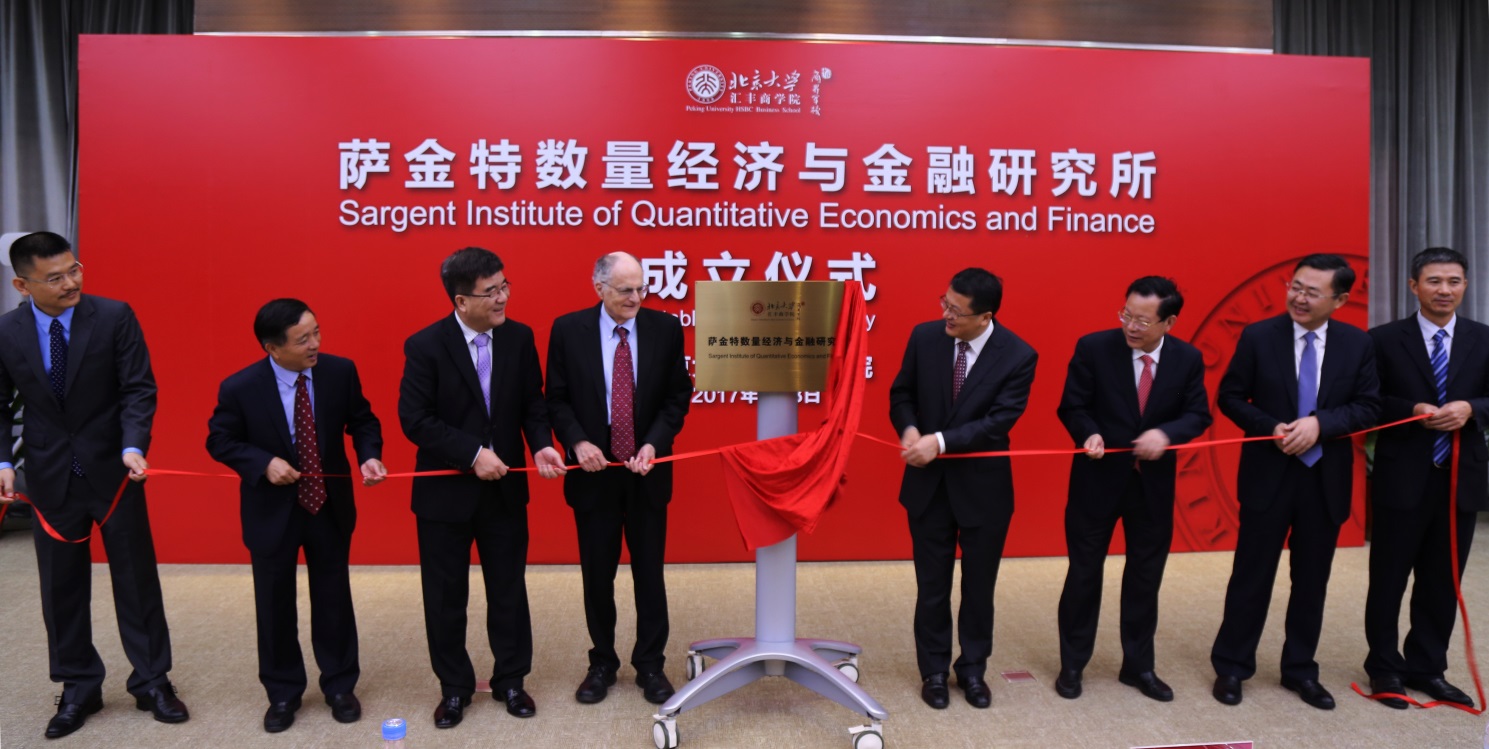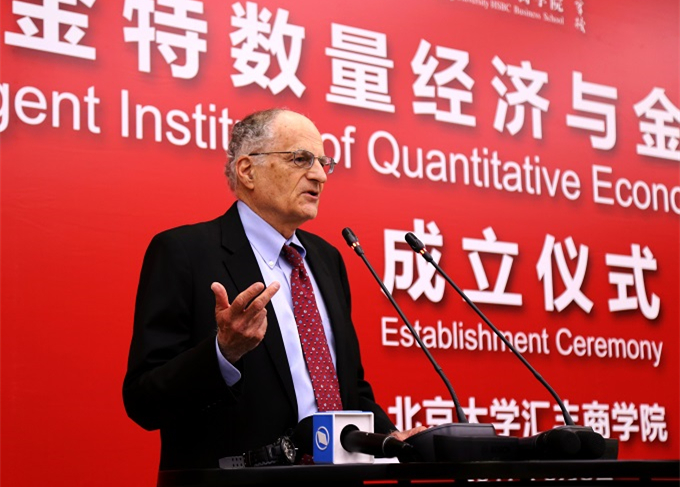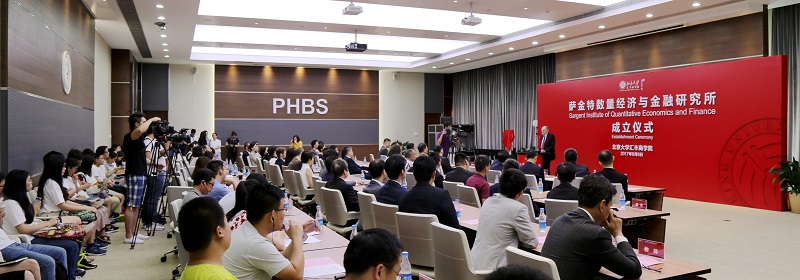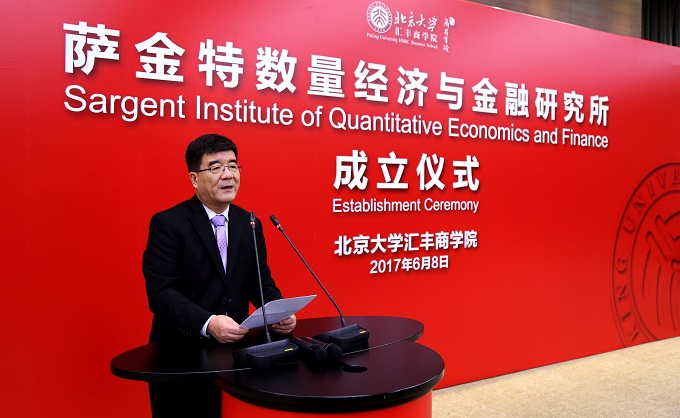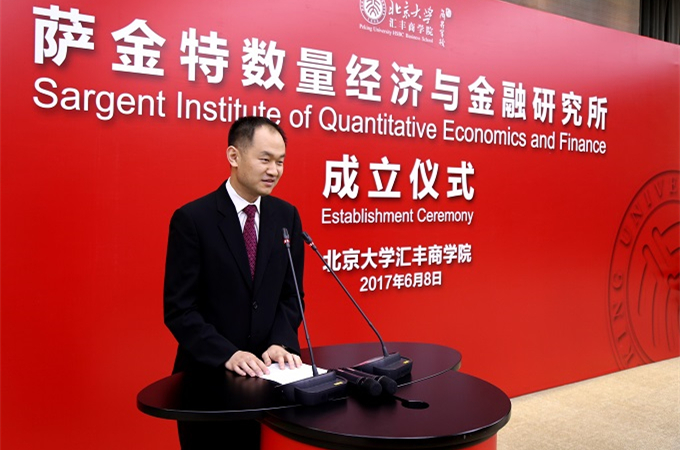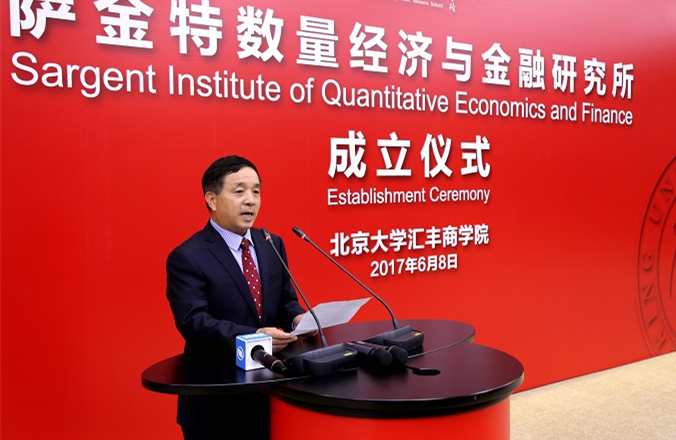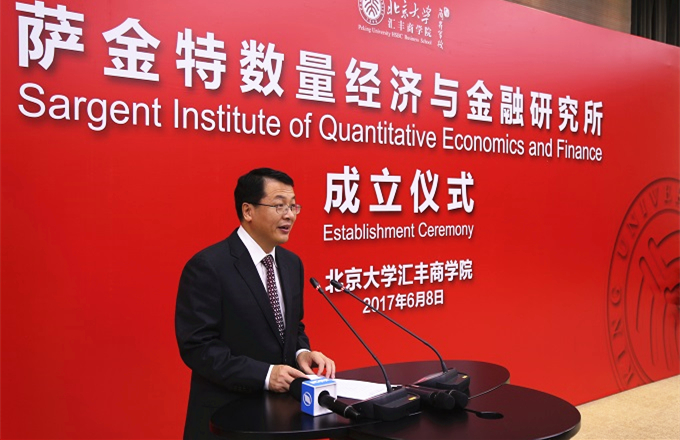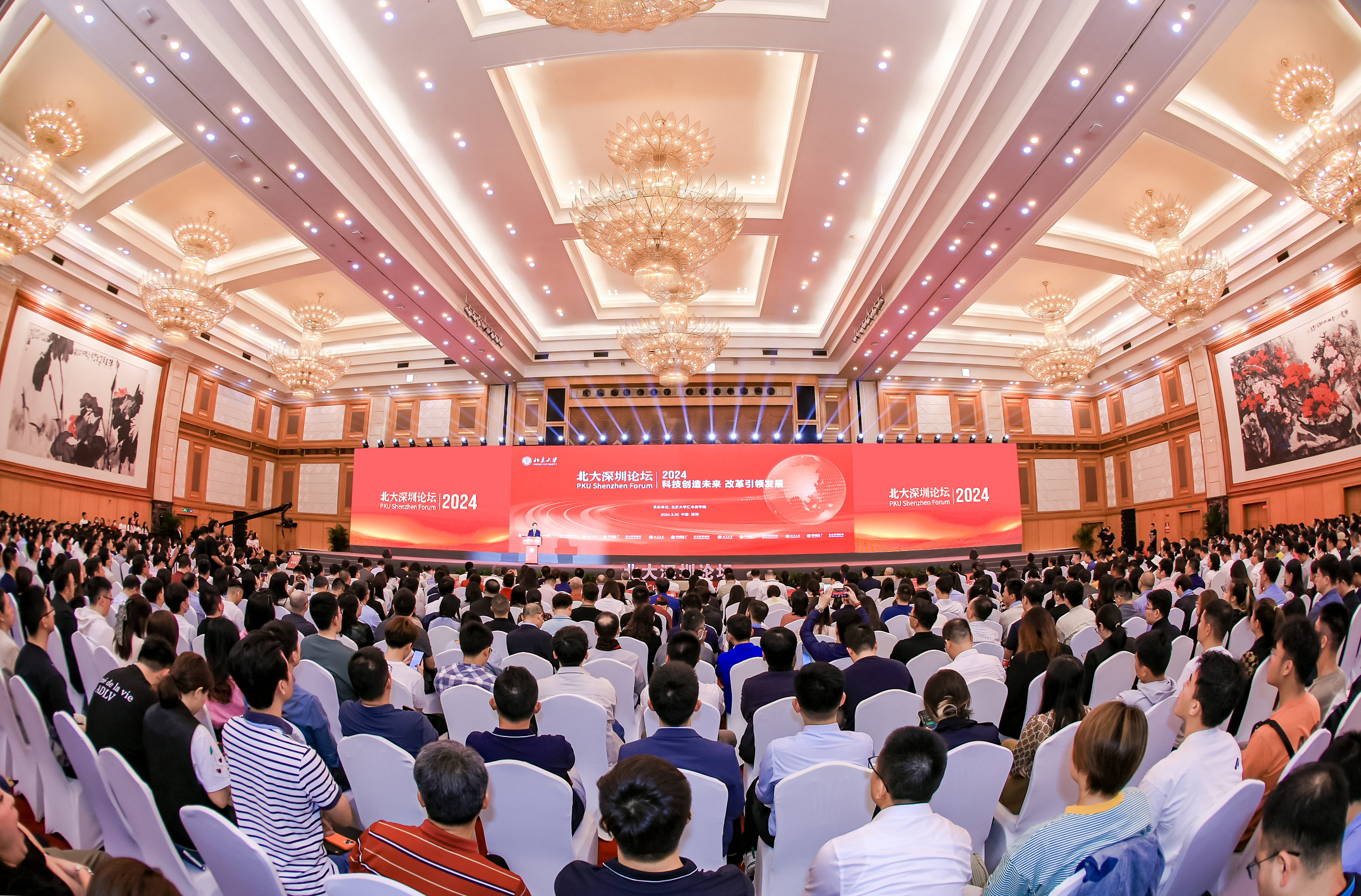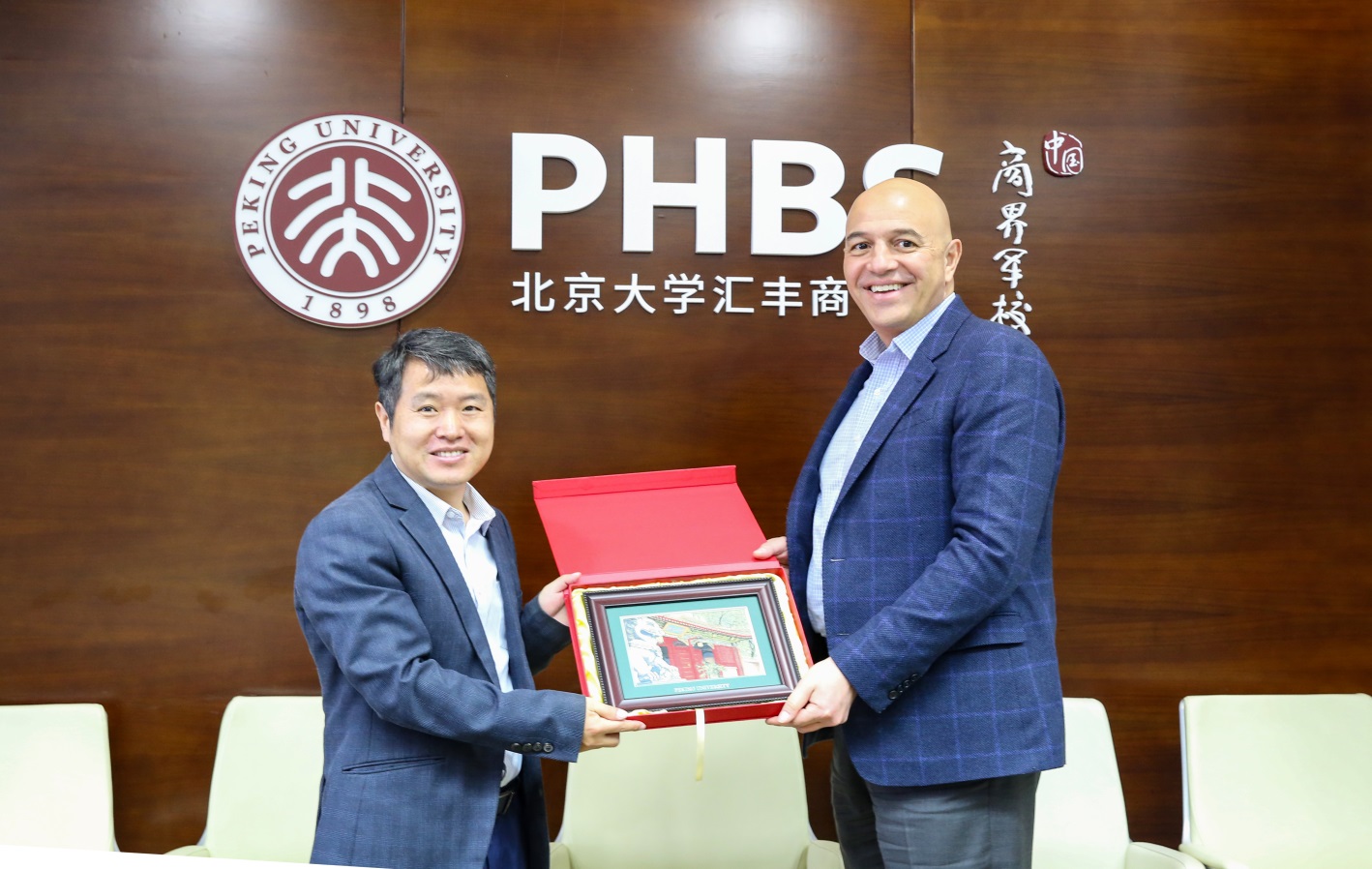The center of higher education in China has long been found within the one-and-a-half miles in Zhong Guancun, Beijing, that run between Peking University and Tsinghua University. But there is new competition for that title, and it is quite a bit farther south.
Located in China’s first special economic zone, adjacent to the Asian financial hub of Hong Kong, Peking University HSBC Business School (PHBS) has lured a number of well-respected financial practitioners and economists to Shenzhen in the last few years and is striving to launch high-level think tank programs.
This June, it was Thomas Sargent, the 2011 Nobel laureate in economics, who joined PHBS as the director of the Sargent Institute of Quantitative Economics and Finance. Not only is this new initiative a milestone for PHBS but also for the city’s development as a center for education. Only about three decades old and with few local universities, Shenzhen was once regarded as an educational desert. This is in stark contrast to its current standing as China’s hub of innovation and startups.
To strengthen its higher education, Shenzhen has accelerated its steps to “import” renowned institutions like Peking University and talented personnel. For example, the new research institute at PHBS is the first social science research institute named after Nobel laureates on mainland China. Further, of the four Nobel laureates who have set up research institutes in the area, Sargent is the only one with an outstanding reputation in macroeconomics.
Unveiling ceremony of the Sargent Institute of Quantitative Economics and Finance
(from left to right: Ting Ren, PHBS associate dean, Zhiqiang Bai, executive vice chancellor of PKUSZ, Wen Hai, PHBS Dean, Thomas Sargent, Nobel laureate, Hu Zhang, executive vice mayor of Shenzhen Municipal People’s Government, Tingzhong Li, general secretary of the Shenzhen Municipal Government; Hongbin Wang, head of Development and Reform Commission of Shenzhen, Jianming Xie, deputy director of the Shenzhen economic, trade and information technology commission.)
A New Start
“I admire the smart students and young faculty members I met here,” said Sargent at the ceremony announcing the institute. With his philosophy to “grow old gracefully,” Sargent still teaches economics courses, and is devoted to research and exploring economics models. In recent two years, he has also published papers in a number of influential journals, such as The Economic Journal, Journal of Economic Literature, Review of Economic Dynamics and Quarterly Journal of Economics.
Prior to joining PHBS, the renowned economist in his seventies was invited to deliver a keynote speech at the 2016 Peking University Global Financial Forum and then enjoyed an afternoon with PHBS students and faculty, talking non-stop for hours on economic models and theories. It was on his third visit that Sargent agreed to establish the institute with PHBS. According to PHBS Dean Wen Hai, the institute will focus on the frontiers of quantitative economics and finance, including artificial intelligence (AI), big data, economic modeling, and dynamic econometrics.
With his focus on the fields of macroeconomics, monetary economics and time series econometrics, Sargent won his longstanding reputation for his pioneering “rational expectations theory” and has ranked among the most cited economists in the world. He was awarded the Nobel Prize in Economics in 2011 along with Christopher Sims “for their empirical research on cause and effect in macroeconomics.” In addition to his academic excellence, he has also held teaching positions at Ivy League universities, such as Stanford and Princeton, and currently is a professor of economics at New York University, a school noted for its graduate program in economics.
“I love to talk with students,” Sargent said in an interview last October, recalling that his students often demonstrate solid mathematics skills, passionate research interest and creativity. Greatly interested in students’ development, he has decided that the institute will also provide talented students worldwide with opportunities to take part in its short-term “Python and Economics” programs, where they can engage in idea exchanges and academic interactions.
Nobel laureate Sargent announces the establishment of the Sargent Institute of Quantitative Economics and Finance
A self-described “positivist,” Sargent is among a new generation of professors using Julia and Python both for teaching and cutting-edge research, as economic models nowadays is computationally intensive with large datasets and large numbers of variables. “We want to make economics more and more like physics and chemistry, making it quantitative,” said Sargent at the ceremony, further elaborating on the blueprint of the institute, which will “crunch” extensive sets of data and doing empirical research to glean insights about the real world.
Sargent will be in residence at PHBS for up to two months each year to lead research and build a team consisting of top researchers from PHBS and overseas top universities, such as the University of Chicago, Princeton University, and the National University of Singapore. “What I hope to do is joining my colleagues here to help shed some light on economic theories as well as empirical studies.”
The establishment ceremony
A Strong platform
Located in the Pearl River Delta, a vibrant economic hub, PHBS provides the ideal setting for studying advances in finance, economics and management, with the MA and full-time MBA programs conducted in English. Within its MA degree programs, international students make up 15% of the students. In addition, PHBS has taken a bold step to open a new campus in the UK this year.
Now, nearly half of the school’s 60+ faculty members are international, and more than 95% of all faculty earned their PhDs from prestigious overseas universities. Hiring renowned scholars and practioners as professors is part of PHBS’ strategic plan to build a globally competitive faculty and promote interactions between academic research and the financial market, according PHBS Dean Wen Hai. Now, nearly half of the school’s 60+ faculty members are international, and more than 95% of all faculty earned their PhDs from prestigious overseas universities.
PHBS Dean Wen Hai delivers a speech at the ceremony
The newest such hires includes Sargent, but the shift is also noticeable among young financial practioners and economists. Of the six faculty who joined PHBS since last fall, three have over ten years’ experience at top financial institutions. This March, the renowned Chinese economist He Fan also joined PHBS as the executive dean of the Research Institute of the Maritime Silk Road (RIMS), a high-level think tank that aims to focus on research concerning the “One Belt and One Road” initiative.
Dean Hai hopes that the institute will leverage PHBS’ strong faculty resources to closely work with financial institutions and innovative enterprises in Shenzhen. “It will also provide PHBS students with courses in advanced macroeconomics, quantitative economics and computer language, as well as artificial intelligence,” remarked Dean Hai, adding that PHBS will launch a Ph.D. program in quantitative finance, and incorporate Fintech into its master program in Finance. Sargent will also offer macroeconomics course for Ph.D. students.
PHBS Assistant Professor Jaehyuk Choi speaks on behalf of PHBS faculty
“With the rise of new technologies, such as machine learning, AI and Fintech, we should not afraid of being quantitative, but afraid of not being quantitative. And promoting quantitative programs has been one of our school’s long-term initiatives.” remarked Jaehyuk Choi, former vice president of the Goldman Sachs Securities Division. Joining PHBS last fall as assistant professor, Choi has been delving into the fields of applied mathematics, finance engineering and Fintech, and will work as a researcher at the new institute. “I hope that this institute will act like a catalyst to nurture the quantitative nature of PHBS.”
In addition to strong faculty, the new institute will also have state-of-art facilities at its disposal. For example, PHBS opened its new financial lab in September 2015 to support faculty and student research. The lab includes a live broadcasting system, a cloud server, 59 student computers, data processing software, and other equipment. An LED stock ticker is arranged in the center of the ceiling to provide a real-time data feed from all major stock exchanges.
Since the type of work the institute will conduct requires lab space and that there are exciting opportunities with data, methods, and machine learning – a fact PHBS has exploited, the institute is in a good position to push forward the frontiers of quantitative economics and finance.
A Rising Force
Setting up an outpost in mainland China has become increasingly common for the world’s leaders in higher education. From New York University to Stanford, Western institutions are eager to establish a foothold in a country with one of the fastest growing economies. In the future, about 18 Sino-foreign joint universities will be set up in Shenzhen’s Longgang district.
Not only does Shenzhen offer space for institutions from the West to expand, but it also provides top scholars the chance to tap into its pool of research funding. For instance, four institutes named after Nobel laureates were established in Shenzhen previous to the Sargent Institute: Grubbs Research Institute (Robert H. Grubbs, chemistry), Nakamura’s new laser diode lab (Shuji Nakamura, physics), Arieh Warshel Institute of Computational Biology, (Arieh Warshel, chemistry) and Kobilka Institute of Innovative Drug Discovery (Brian K. Kobilka, chemistry).
Said PHBS Dean Hai in an interview, “The industrial upgrade of Shenzhen indicates there is a huge demand for talent in many fields, including biology, physics, chemistry, finance, law, the arts, and health care. ”At the ceremony, he stressed that the Sargent Institute will bring a large pool of high-level talent for the future development of Shenzhen.
Ziqiang Bai, executive vice chancellor of PKUSZ, delivers the speech
“I believe, the institute will attract top economists worldwide to conduct research, thus providing strong support for China’s economic development and cutting-edge economics research,” commented Ziqiang Bai, executive vice chancellor of Peking University Shenzhen Graduate School (PKUSZ). He held that this initiative not only was a big leap for PHBS, but also could serve as part of PKUSZ’ s efforts to set up an international campus.
Hu Zhang, executive vice mayor of Shenzhen Municipal People’s Government, speaks on the significance of the institute
Hu Zhang, executive vice mayor of Shenzhen Municipal People’s Government, said in his speech, “As Shenzhen is an innovation center of Fintech, AI and cloud computing, which fits the research focus of the new institute, establishing the research institute in this prosperous city with the help of this vibrant university is bound to attract more world-class talent in related fields, make greater contributions to the higher education, and industrial upgrading of Shenzhen.”
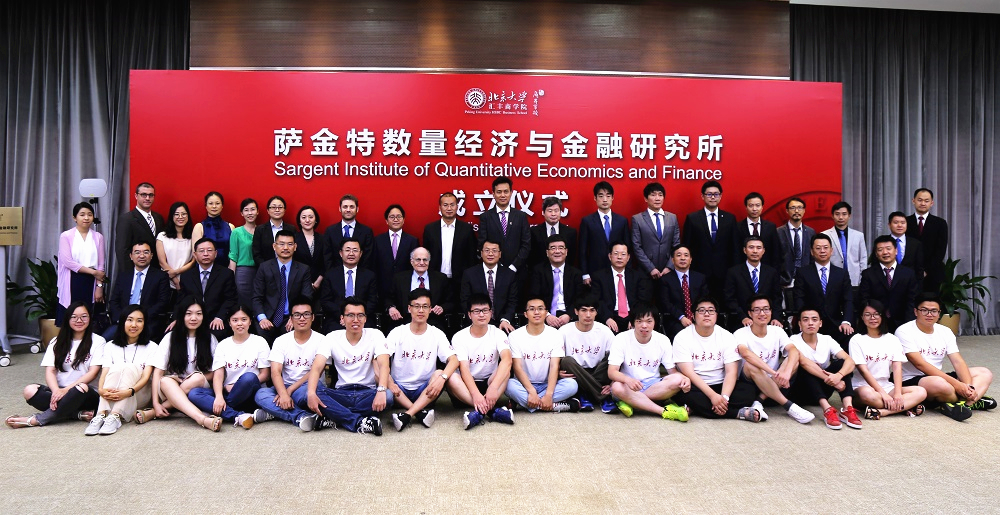
A group photo of attendees at the ceremony
By Annie Jin
Edited by Priscilla Young





